Sense of Adventure: Instrumental Duo Mindful Dynasty Experiments With Different Genres on “The Barn Waltz” Album
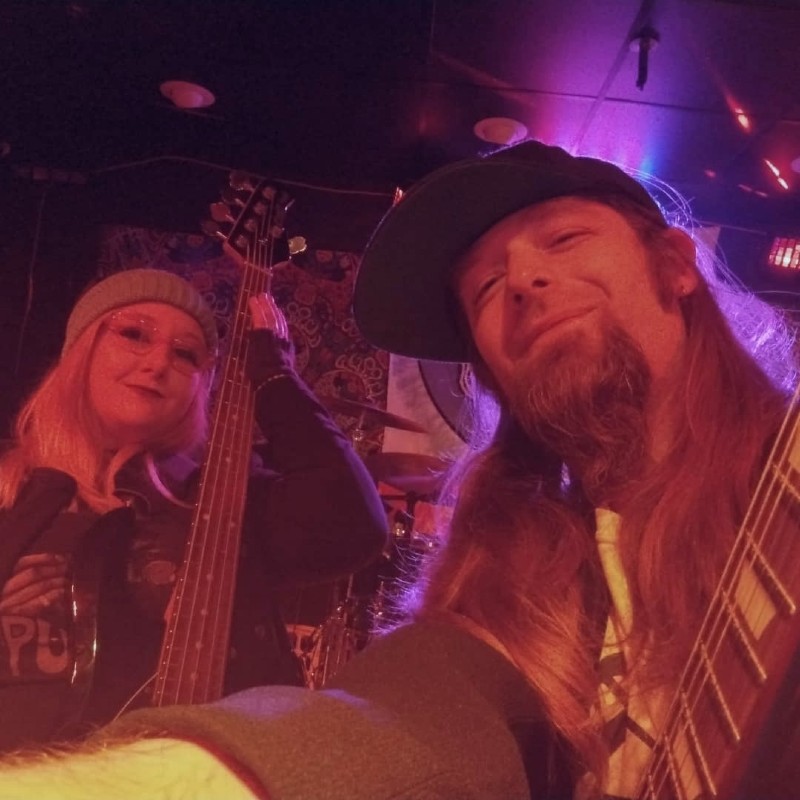
When it comes to creating music, Mindful Dynasty embraces a choose-your-own-adventure approach on The Barn Waltz.
The South Lyon instrumental duo of Jason Wiseley (guitar, percussion, strings) and Toshana Grim (bass, strings) experiments and improvises with several genres—ranging from psych rock to EDM to flamenco—on its latest double album.
“It’s like going through an adventure, and there are highs and lows; there are also fast parts and slow parts. There are parts that are a little funky and maybe ones that make you laugh a little because there’s a wonky note,” Grim said.
“There are also parts where you might think, ‘This is so beautiful.’ That’s just life—in my opinion—because it is an adventure. The more you can just relax and go with the flow, the more fun you have.”
That carefree attitude and creative mindset flow throughout The Barn Waltz’s 17 tracks, which also feature elements of metal, classical, and funk interspersed with film samples.
“I write for everybody, but in my mind’s eye, it’s [especially] for somebody who plays an instrument. … I just want people to feel inspired. I want people to [hear] our music and think, ‘Oh Jason’s goofy, I can do that, too,’” said Wiseley, who workshopped the album’s tracks live with Grim during a past residency at Zerbo’s Market & Bistro in Commerce Township.
“Part of the reason why The Barn Waltz is dark and has all the movie samples is because I wanted to juxtapose the pretentiousness of the guitar playing. I wanted to put in this silly stuff and put in all of the dance music to pull back the idea that to have that level of fun playing music requires you to actually not have any fun at all.”
I recently spoke with Wiseley and Grim about their backgrounds, the origin of Mindful Dynasty, the evolution of their sound, select tracks from The Barn Waltz, the creative process for the album, and upcoming plans.
Love Country: Erin Hahn's latest romance novel is humorous, songful, and lyrical

Nothing burns like unrequited love or miscommunication.
The two characters in Erin Hahn’s aptly named new romance novel, Friends Don’t Fall in Love, prove the title either right or wrong by the end of the book. This novel is the spicy second addition to Hahn’s trilogy that started with Built to Last.
Friends Don’t Fall in Love takes place in Nashville, and things are already complicated given that character Lorelai Jones rents the other half of her friend—and crush—Craig “Huckleberry” Boseman’s duplex. The plot presents humor, missteps, sex, music, romance, and the potential for redemption.
The cards are not exactly stacked for these two. Craig and Lorelai are both navigating their thorny profession—and pasts. Craig is growing his indie record label and songwriting prowess after separating from the popular but toxic lead singer, Drake Colter. Lorelai is taking baby steps to rebuild her career after getting kicked out of the spotlight—a choice she made at her last concert—and having that same singer, Drake, break off their engagement.
Despite the setbacks, Craig and Lorelai are both in it for the love of music. Craig reflects on his connection to songs:
Peak of Success: Nick Baumgardner and Mark Snyder Revisit U-M Wolverines’ 1997 National Championship Season in New “Mountaintop” Book
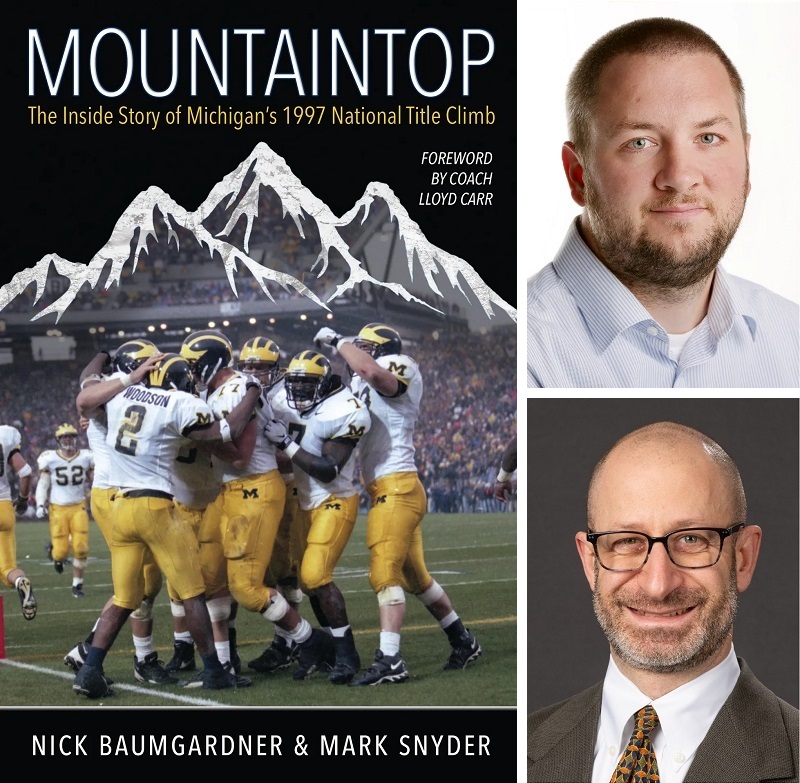
Books about the University of Michigan’s football team could easily fill several shelves, but strangely, one thing that’s been missing is a deep-dive chronicle of the 1997 National Championship season.
Don’t worry, though. Longtime local sports journalists Nick Baumgardner and Mark Snyder just filled that gap by way of a brand new book, Mountaintop: The Inside Story of Michigan’s 1997 National Title Climb.
Yet the arrival of Mountaintop inevitably begs the question: Why did it take so long for a book about that hallowed season to appear in the world?
“A lot of it has to do with Lloyd Carr, who doesn’t like to talk about himself a lot,” said Baumgardner, who now writes about the Detroit Lions for The Athletic. “That’s a big part of it. … The other thing, too, is a lot of these [former players] … they’re protective of it, and they aren’t very trusting about people getting their stories right, so it’s a hard group to crack.”
But crack it he (and Snyder) did, interviewing, over the course of two years, not just every surviving member of the team that they could track down, but also coaches, staffers, and others while doing loads of research, too.
“Mark Snyder came to me; he’d covered Michigan at the Free Press for a long time, and The Oakland Press and The Michigan Daily, and he’d known Lloyd for a long time ... he was certainly closer to him than I was,” Baumgardner said. “Lloyd and a few other people from that era came to Mark with the idea of maybe doing a book, since no one had done one on the ‘97 team.”
Ann Arbor filmmaker Christina Morales Hemenway premieres "Get Real" comedy at the Michigan Theater
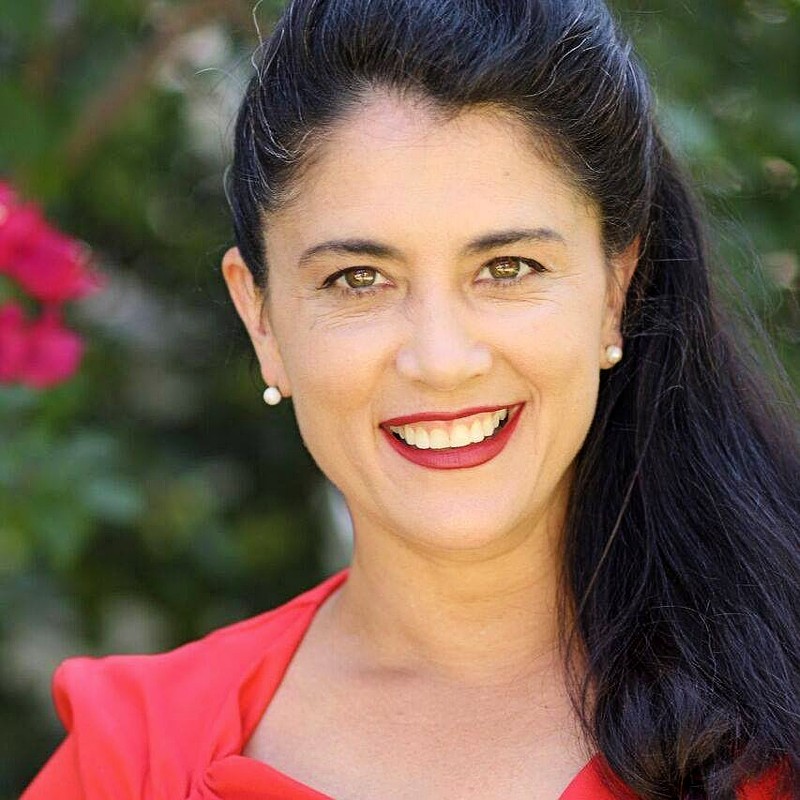
Christina Morales Hemenway got the idea for her new film, Tommy Hollywood and Katie Encino Move to the Midwest to Get Real, in 2005, after she moved back to Michigan following 17 years in Los Angeles.
The Ann Arbor-raised Morales Hemenway—her parents own Elmo's T-Shirts on East Liberty Street—found so much humor in the expansive cultural gap between Left Coast glamor and Midwestern modesty that she wrote a script that ends up lovingly skewering both sides. (The ad line for the film is, "Think Clueless meets Fargo. A mutually offensive comedy.")
Now, nearly 20 years after the initial inspiration, the comedy more commonly called Get Real has its premiere at the Michigan Theatre on Friday, January 5—which is only fitting.
"Russ Collins [executive director] of the Michigan Theater plays the mayor of the small Midwestern town [the characters] end up in," Morales Hemenway says. (Her 2005 film, Dreammaker, also premiered at the Michigan Theater.)
Filmed in Milan, Ann Arbor, and Brighton, the fish-out-of-water comedy pokes fun at our celebrity-obsessed culture. Get Real is Morales' fifth feature outing as a writer-director and it shifts the focus from the romance of her last film, 2019's Bride +1, to satire and tells the tale of two disillusioned "L.A. airheads" who move to a small Michigna town in a last-ditch bid to save their relationship. Actors Chris Daftsios and Joni Allen play the lead roles, and a large part of the rest of the cast is Ann Arbor-area actors—most of whom have never acted before.
Feeling Stranded: Linen Ray Reclaim Their Sense of Hope on ‘By a Thread’ Single
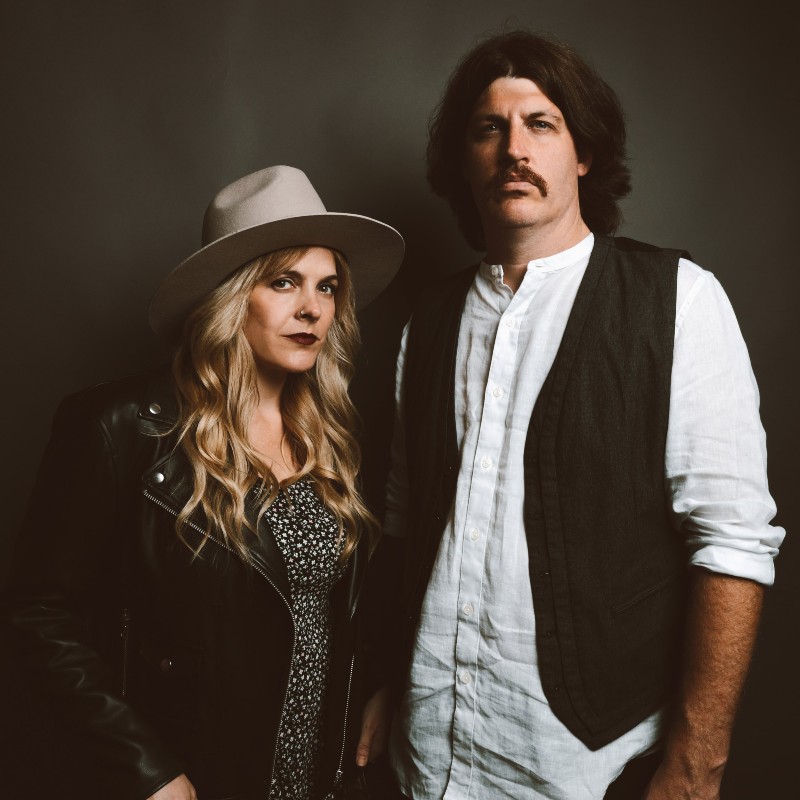
Despite feeling overwhelmed and heartbroken, Linen Ray refused to give up hope.
The married folk-rock duo of Rebekah Craft (vocals) and Gabriel Craft (drums, backing vocals) tried to stay positive and calm while helping a loved one navigate a mental health crisis.
But over time, it felt like they were carrying the weight of the world on their shoulders. There were moments when caring for another became too much to handle alone.
“Trauma will sometimes cause a person to bury their pain and live in denial. For us, it felt so completely overwhelming,” said Rebekah Craft, who hails from Ypsilanti, but is based in Nashville, Tennessee with Gabriel Craft and their family.
“We weren’t exactly living in denial, but when life comes down on you so hard and you feel helpless, you sometimes lose the ability and energy to express your thoughts and feelings. We were grieving and in a dark place.”
In that dark place, Linen Ray reclaimed their sense of hope and channeled their emotions into songwriting. What resulted is “By a Thread,” a vulnerable new ballad that serves as a plea for help and understanding.
Helena Mesa discovers “Where Land Is Indistinguishable From Sea” in her new poetry collection
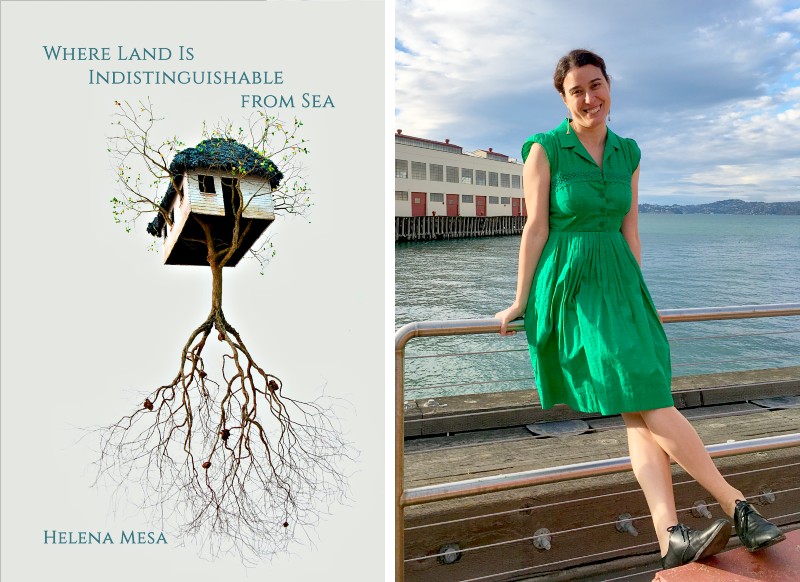
Helena Mesa measures the space between places and people through the poems in her new collection, Where Land Is Indistinguishable From Sea. The poems teem with longing, whether from loss or distance or both.
This longing is sometimes for a person and other times for a place. In the poem “First Year Gone,” the poet speaks to an unreachable person as she undoes her knitting:
You’ve become
a dream, my lips tasting only
damp wool, an ocean bed
drained of seawater, its kelp
drying in summer heat—if only I could
cross the dry basin
before storms flood the ocean once more.
The impossible task of traversing the ocean bed illustrates how “you remain as far now as you were / when I first knit these rows.” The loss is a drought, and more storms are on their way.
Another poem, “After Exile,” narrates some attempts to feed another person’s bird after she has left. The bird does not eat: “It understood longing hungers longer / than anyone could hold out / their hand.” Mesa, too, understands what it is like to not have the one thing that a creature needs, the one joy in this all too bleak life.
Religious undertones permeate the poems, especially Eden which appears in several places even though “I did not ask to be an Eden.” “The Lesson” reflects on the concept of God’s presence when “She said, He is everywhere, / even inside you.” While Eve must deal with her shame in the garden after eating the forbidden fruit, the shame becomes a side effect in Mesa’s poem. Exile moves to the forefront, and it is even a foregone conclusion at the outset of sin because “He lived inside her / and felt the thought form.” Another poem calls forth “Lot’s Daughter,” and the poem titled “The want for faith” describes the tenuous nature of faith that allows one “to glimpse / what might be the blurred edge / of a dog chasing a hare / or nothing at all.” Clarity is elusive.
The longing in these poems brings not just the ache of loss but also the occasional fruit of “sweet persistence.” The poem named “Waiting to Meet in San Francisco” is breathless with hope, and the poet takes the imperative to implore: “Say yes. Say you will / let go, say you’ll never, / say air will catch us both.” The time of day also brings splendor, as “Morning crackles more clearly through the trees.” Brightness seems to cut through the grief and desire.
Since some loved ones are gone forever and religion does not provide all the answers, Mesa’s poems continue questioning what distance means. Mesa’s parents left Cuba for the United States when they were young, and that drastic move informs poems in the collection. The recurring questions about time and space appear in multiple poems, such as “Catalog of Unasked Questions,” which starts with the lines:
How far before home
receded beyond the horizon?
(54 km) How far before It’s too late
to turn back? (22 km)
The mileage and time add up. These totals may or may not change the outlook, as the last question of the poem asks:
…And how far
Before the distance
No longer felt distant?
( )
Distance is the reality as “Everyone I’ve ever known / lives so far.” Fulfillment remains out of reach given that “The map to reach you pale and wordless” does not offer answers to close the distance.
Mesa lives in Ann Arbor and teaches at Albion College. I interviewed her about Where Land Is Indistinguishable From Sea.
AARON BURCH EMBRACES AMBIGUITY AND NOSTALGIA IN HIS NEW ESSAY COLLECTION, “A KIND OF IN-BETWEEN”
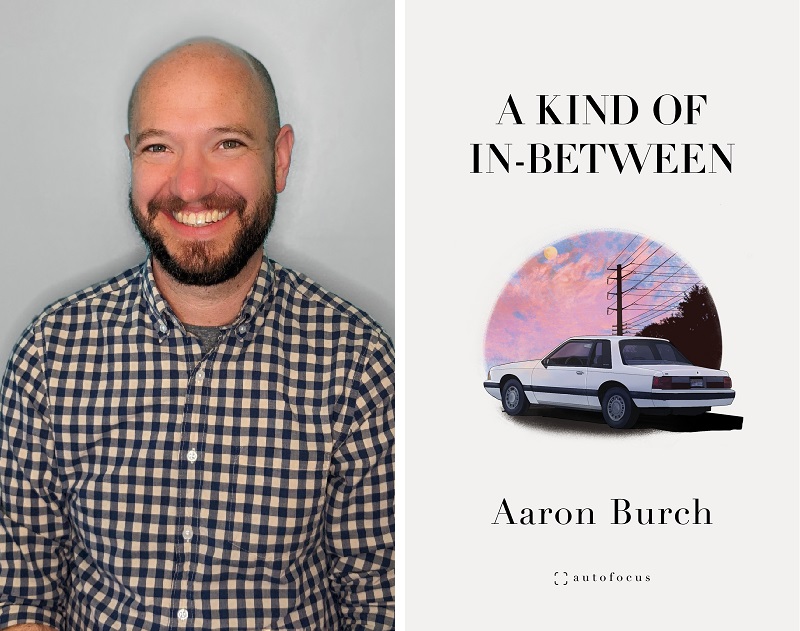
Aaron Burch recounts major life changes and memories in the essays of A Kind of In-Between. Throughout the pages, Burch questions what is important in life. What do you remember? What does it mean? Why are you happy or not?
Focusing on the places he has been is one approach that Burch takes to inform these inquiries. He shares that he grew up in Washington and has subsequently lived in Michigan and Illinois as an adult. In the sentence that lends itself to the book’s title, he narrates his road trip:
I’m somewhere in the middle of Pennsylvania, driving around this big, long turn while also going down a decent decline. I don’t know how steep; I don’t really have any idea how to measure or guesstimate that kind of thing. I can tell it’s steeper than anything in Michigan but less so than Washington, a version of the kind of in-between that I return to again and again—known but not, neither childhood nor adult, not quite then or now, here or there.
This ambiguity begins in the physical world and then seeps into other contexts. The human urge to name and define things breaks down when something is neither one nor the other. Burch concludes this essay called “Ohiopyle” with a question: “Were you to ask me, somewhere in the middle of Pennsylvania, whether home meant Washington or Michigan, what would I answer? I’m not sure.” Still, maybe one does not have to decide, as Burch highlights “the interconnectedness of everything and everyone” in the first essay of the collection.
Screen Tests: Experimental shorts by Ann Arbor filmmakers

Like all great things, the Ann Arbor Film Festival rose from humble beginnings.
Founded in 1963 by filmmaker and connoisseur George Manupelli, the festival quickly earned an international reputation as a premier venue for independent and experimental cinema. The Michigan Theater has provided the AAFF with a luxurious home since 1980, but the original home base was the University of Michigan’s Architecture Auditorium (now known as Askwith), and the vibes back then were decidedly scruffier.
Local film historian, projectionist, and author Frank Uhle remembers it well.
“In the early days of the Film Festival, audiences were very interactive,” he explained. “There was always a smell of stale beer, cigarettes, and pot smoke in the air. Inevitably some of the films were boring, or pretentious, or deliberately provocative, and people would yell their opinions at the screen or whistle and make noise.
“Sometimes another person would defend the movie and an argument would ensue. Always, a beer bottle would get tipped over in the dark and roll noisily down the sloped floor while everyone snickered.”
That’s the kind of anarchic spirit Uhle will be conjuring on Friday, December 1 at 7 pm when he hosts “Experimental Shorts by Ann Arbor Filmmakers From the 1960s-80s,” a free screening of vintage celluloid at Askwith Auditorium in Lorch Hall. (It's part of U-M's semester-long "Arts and Resistance" series.)
No, he’s not going to let you smoke in there, but he’ll be showing early homegrown AAFF favorites in the same venue they first flickered in back when the counterculture was the culture and the art was the point.
Uhle went to his first AAFF in 1978 and has been involved in local film culture ever since. His recent book, Cinema Ann Arbor, covers the 100-year history of A2’s campus cinema societies and the filmmakers they inspired and nurtured.
Students first officially organized film clubs in 1932 to screen non-mainstream fare, local interest grew along with the AAFF and the university began its film program in 1968. By the 1970s, there were multiple, competing student film societies outdoing each other with screenings of foreign rarities, forgotten Hollywood masterpieces, and uncompromising experiments. It was inevitable that a devoted scene of filmmakers would bloom in such soil, and it’s these artists that Uhle celebrates, a few of whom he’ll have on hand for a Q and A session after the screening.
The films share a loose, improvisational approach but cover a wide range of styles. Handmade animation, abstract imagery, punk lampoonery, cinema verite slices-of-life, introspective moodiness, anti-war agitprop, plus vintage promos and ephemera from film society screenings of the day. Some haven’t been seen for decades, enjoying only a handful of local screenings after production before languishing in various states of storage.
“I got them from a bunch of different sources,” said Uhle. “Mostly from filmmakers, but some of them were literally found in the attic of the Michigan Theater. A lot of the projectionists from U of M would also moonlight at the Michigan, and at a certain point people were stashing these prints up in the attic.”
Others came from faculty members who had purchased and preserved some of the better films that former students had made.
“I’ve had some strokes of good fortune. Alan Young from the film program has this wonderful office that’s like an archive of old equipment," Uhle said. "I noticed up on a shelf there were a few reels of 16mm film. They were student projects that they saved. Some of these films, my god, they were just amazing-looking films.”
Here are a few highlights:
Along the Way: Ypsi singer-songwriter Adam Plomaritas returns with his first new release in a decade
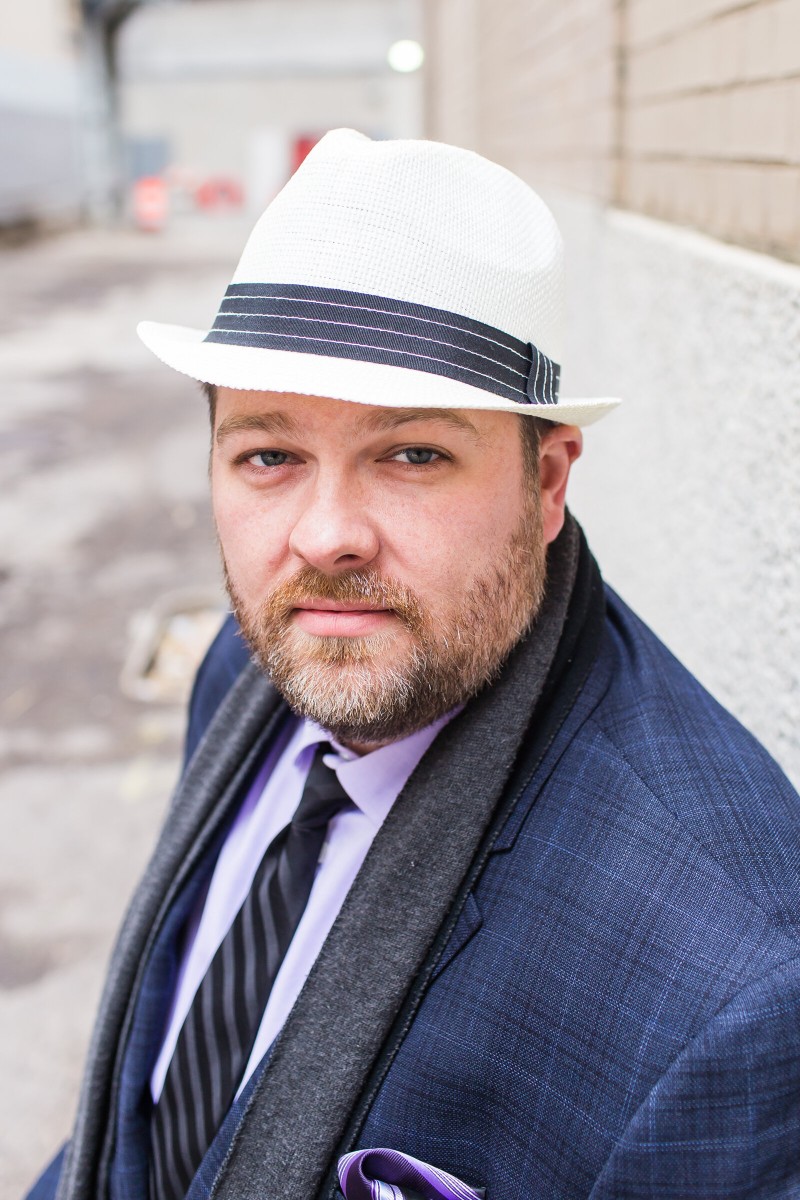
Adam Plomaritas’ new EP reflects on his personal journey of love and growth.
It provides the Ypsilanti pop-soul singer-songwriter with an emotional outlet for exploring the opportunities and challenges that come with being loved and loving others.
“These tunes are about finding a balance between wondering if you’re loved enough and if you’re loving enough in the best ways,” said Plomaritas about Old Time Love, his first collection of new songs since his 2013 album, The Hard Way. “As a husband, father, son, brother, and artist, it’s natural to seek approval, if not always healthy.”
Plomaritas beautifully captures that sentiment on Old Time Love, which features five infectious tracks filled with heartfelt vocals, vibrant horns, and upbeat pop-rock instrumentation.
“The EP is a little bit of introspection, even though the songs are generally light and fun in nature,” he said. “You seemed to have pierced the hard candy shell and gotten to the ooey, gooey chocolate inside—it’s about feeling like you’re enough.”
I recently spoke with Plomaritas about growing up in a musical family, solidifying his writing and recording skills through earlier releases, anticipating his first new release in 10 years, sharing select songs from Old Time Love, and preparing for a December 1 show at The Ark.
That Old Boom Bap: The Prop Shop's DJ Chill Will has been spinning bangers on WCBN for 35 years
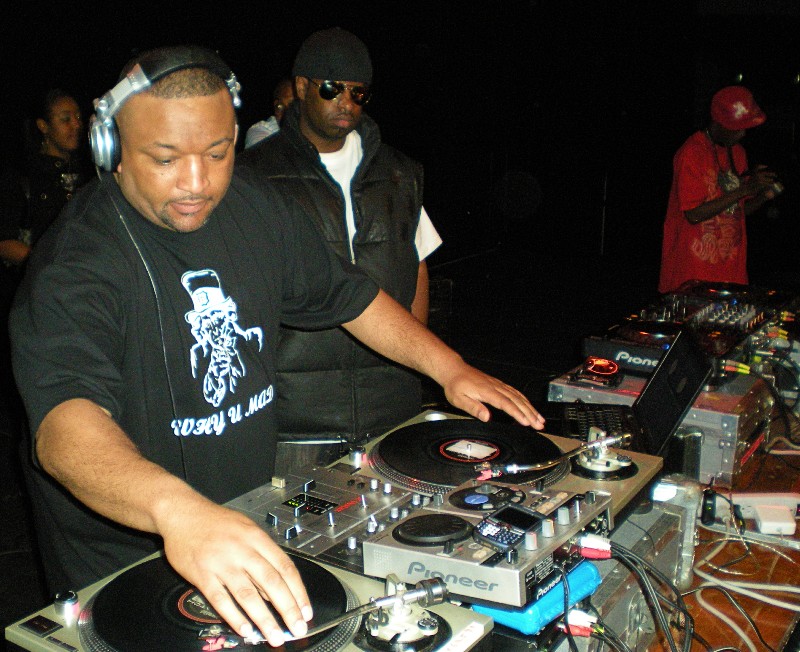
Toward the end of the 2004 smash “Time’s Up” by Jadakiss, a voice came on the radio as a familiar new beat was blended in:
“World-famous Prop Shop. DJ Chill Will in full effect. That’s how it goes down. Saturday nights, 9 to 12 o’clock Eastern Standard Time right here on WCBN-FM Ann Arbor. You can also check us out live on the world wide web at WCBN dot o-r-g and radio dot net backslash WCBN. It’s Saturday night, y’all. We got about an hour and a half left in the show. Sit back and relax, you know we got the classics coming. Prop Shop. Chill Will. Let’s get it.”
I was tuned into 88.3, the University of Michigan radio station, while driving down a darkened stretch of Island Lake Road outside of Dexter. It was a little past 10:30 pm on September 9, and as the DJ concluded his talk-up, I got goosebumps when the bassline thumped.
It was EPMD’s 1988 jam “You’re a Customer,” which has that “Fly Like an Eagle” sample from the Steve Miller Band, but the head-nodding beat is built off a drum sample and bass riff from ZZ Top’s “Cheap Sunglasses”—and it’s deep.
I leaned over and turned up the volume, feeling the vibration rattle my windows. The temp was hovering around 60 degrees, and with nobody else on the road, I opened the sunroof and rolled down the windows so the song could fly from my car and fill the late-summer air.
The Prop Shop has been rattling glass since 1988, and “Chill” Will Higgs has been at the helm for almost the entire time.
It’s also one of the oldest continually running hip-hop radio shows in the world.
The nearly 55-year-old Higgs mostly plays slappers from the late ‘80s through the mid-2010s, with occasional splashes of dancehall reggae—and virtually nothing from the post-trap world of hip-hop and its cymbal-driven songs with light snares. To quote A Tribe Called Quest’s 1993 song “We Can Get Down,” The Prop Shop is all about artists who “with a kick, snare, kicks and high hat / [are] skilled in the trade of that old boom bap.”
For the commercial mixes Higgs sends out to radio clients such as KRYC and KPAT in California and WJZE in Toledo, Ohio, he does play contemporary rap.
But for The Prop Shop, it’s strictly classic hip-hop for the heads from the eras Higgs loves. Other artists I heard that night include Smif-N-Wessun, Run the Jewels, Jay-Z, The Diplomats, Baby Cham, Dr. Dre, Paul Wall, 50 Cent, and Jeru the Damaja.
The true window shakers. The essence of hip-hop. The real boom-bap.


































